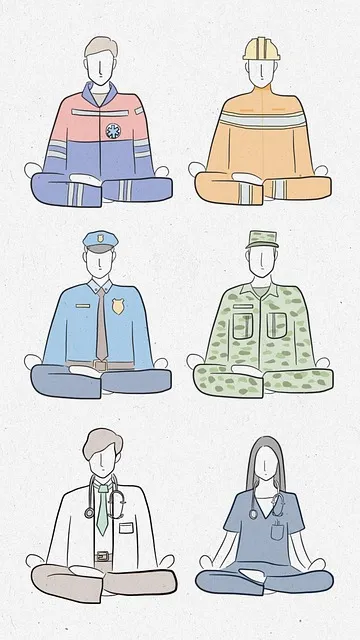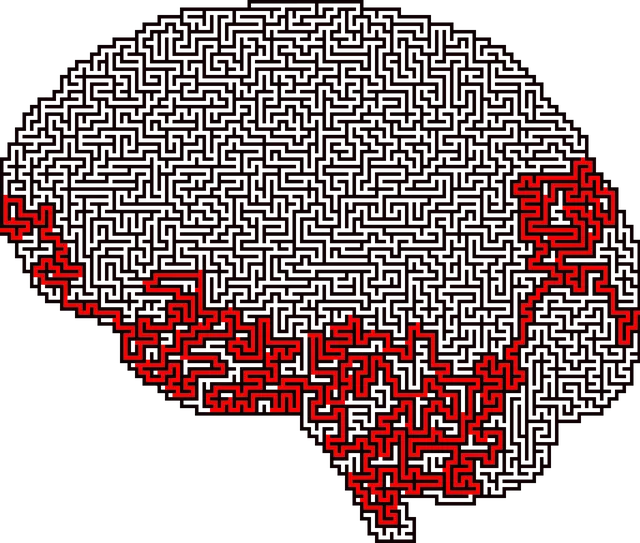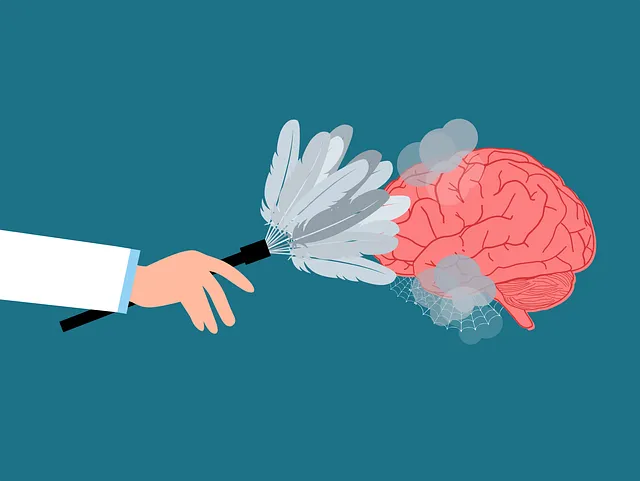Louisville's Kaiser offers comprehensive mental health services through its RFM (Recovery, Flexibility, Mastery) framework, focusing on resilience building and cultural sensitivity. The city prioritizes mental wellness with diverse programs, including group counseling, awareness campaigns, and structured resilience exercises integrated into healthcare staff routines. By implementing empathy-building strategies tailored to Louisville's diverse community, Kaiser enhances mental health support, reducing stigma and fostering a supportive environment for navigating life's challenges.
In today’s fast-paced world, building resilience is crucial for navigating life’s challenges. This article explores an effective framework, RFM (Recovery, Flexibility, and Mastery), and its role in enhancing mental well-being, particularly in Louisville, where Kaiser offers comprehensive mental health services. We’ll delve into the impact of RFM exercises on individuals’ recovery journeys. Additionally, a step-by-step guide and strategies for implementing these programs effectively are provided, offering valuable insights for both practitioners and those seeking to bolster their resilience.
- Understanding RFM and Its Role in Resilience Building
- The Impact of Mental Health Services in Louisville
- Implementing Resilience Exercises: A Step-by-Step Guide
- Overcoming Challenges: Strategies for Effective RFM Programs
Understanding RFM and Its Role in Resilience Building

Resilience is a crucial aspect of mental wellness, enabling individuals to overcome challenges and adapt to adverse situations. RFM (Recovery, Flexibility, and Mastery) is a framework designed to foster this resilience by focusing on three key components. Recovery refers to coping strategies that help individuals bounce back from setbacks; Flexibility involves adapting to change and uncertainty; and Mastery concerns acquiring skills to manage stress and difficult situations effectively.
Louisville’s Kaiser offers mental health services, including RFM-based exercises, that target these areas. These services cater to diverse populations, acknowledging the importance of Cultural Sensitivity in Mental Healthcare Practice. By integrating RFM into their programs, Kaiser aims to enhance Mental Wellness Coaching Programs Development and improve Healthcare Provider Cultural Competency Training. This holistic approach ensures that individuals not only receive support for their mental health but also develop the tools to navigate life’s challenges with resilience.
The Impact of Mental Health Services in Louisville

In Louisville, the availability of mental health services plays a pivotal role in fostering community resilience and well-being. Organizations like Kaiser are known to offer comprehensive mental health support, addressing various aspects of psychological care. These services extend from individual therapy to group counseling sessions, targeting different demographics, including students, working professionals, and vulnerable populations. The impact is profound, as it not only treats existing mental health issues but also promotes overall mental wellness through education and public awareness campaigns.
Louisville’s commitment to mental health development further strengthens through communication strategies and initiatives that encourage open dialogue. By integrating coping skills development programs, the city empowers its residents with tools to navigate stress, anxiety, and other common mental health challenges. These efforts contribute to a more resilient community, where individuals are better equipped to handle adversity, fostering a sense of security and support within the region.
Implementing Resilience Exercises: A Step-by-Step Guide

Implementing Resilience Exercises: A Step-by-Step Guide
In today’s demanding healthcare landscape, Louisville and Kaiser facilities are increasingly recognizing the importance of mental health services to support their providers. One effective approach is through structured resilience building exercises, which can be integrated into daily routines. The process begins with identifying specific areas where burnout is prevalent among staff, such as emergency departments or intensive care units. Once these hotspots are pinpointed, tailored exercises can be designed, focusing on either individual or group settings. For instance, Compassion Cultivation Practices (CCP) have been shown to enhance empathy and reduce stress, making them valuable tools for healthcare workers.
At the core of successful implementation lie clear objectives and consistent delivery. Ensure that all staff involved understand the purpose behind each exercise, whether it’s fostering empathy through role-playing scenarios or practicing mindfulness during short breaks. Regularity is key; scheduling these sessions at fixed times can help make them a sustainable part of the workweek. Additionally, providing options for participation allows individuals to choose activities that resonate with their personal preferences, thereby boosting engagement and adherence. Employing Burnout Prevention Strategies for Healthcare Providers, such as setting healthy boundaries and prioritizing self-care, alongside resilience exercises can create a holistic approach to well-being in Louisville’s Kaiser facilities.
Overcoming Challenges: Strategies for Effective RFM Programs

In any implementation of RFM (Resilience and Mental Fitness) programs, particularly in urban centers like Louisville where Kaiser offers mental health services, overcoming challenges is paramount for success. One key strategy involves Empathy Building Strategies that foster understanding and compassion among participants. By encouraging open dialogue and shared experiences, these strategies help to break down barriers and reduce the mental illness stigma often associated with seeking help. This not only creates a safer space for individuals to discuss their struggles but also enhances the overall effectiveness of the program.
Additionally, resilience-building exercises should be tailored to address the unique needs of the community. Incorporating cultural sensitivity and diverse teaching methods ensures that everyone feels included and engaged. Louisville’s diversity necessitates programs that are inclusive and accessible, reflecting the varied backgrounds and experiences of its residents. Through these approaches, RFM initiatives can become powerful tools for fostering mental wellness, even in the face of challenges.
Resilience is a powerful tool in navigating life’s challenges, and Louisville’s mental health services, including those offered by Kaiser, play a vital role in equipping individuals with these skills. The RFM model provides a structured framework for building resilience through targeted exercises. By following the step-by-step guide outlined in this article, communities can successfully implement RFM programs, fostering a more resilient and adaptable population. Overcoming challenges with strategic planning ensures these programs’ effectiveness, ultimately enhancing Louisville’s mental wellness landscape.




